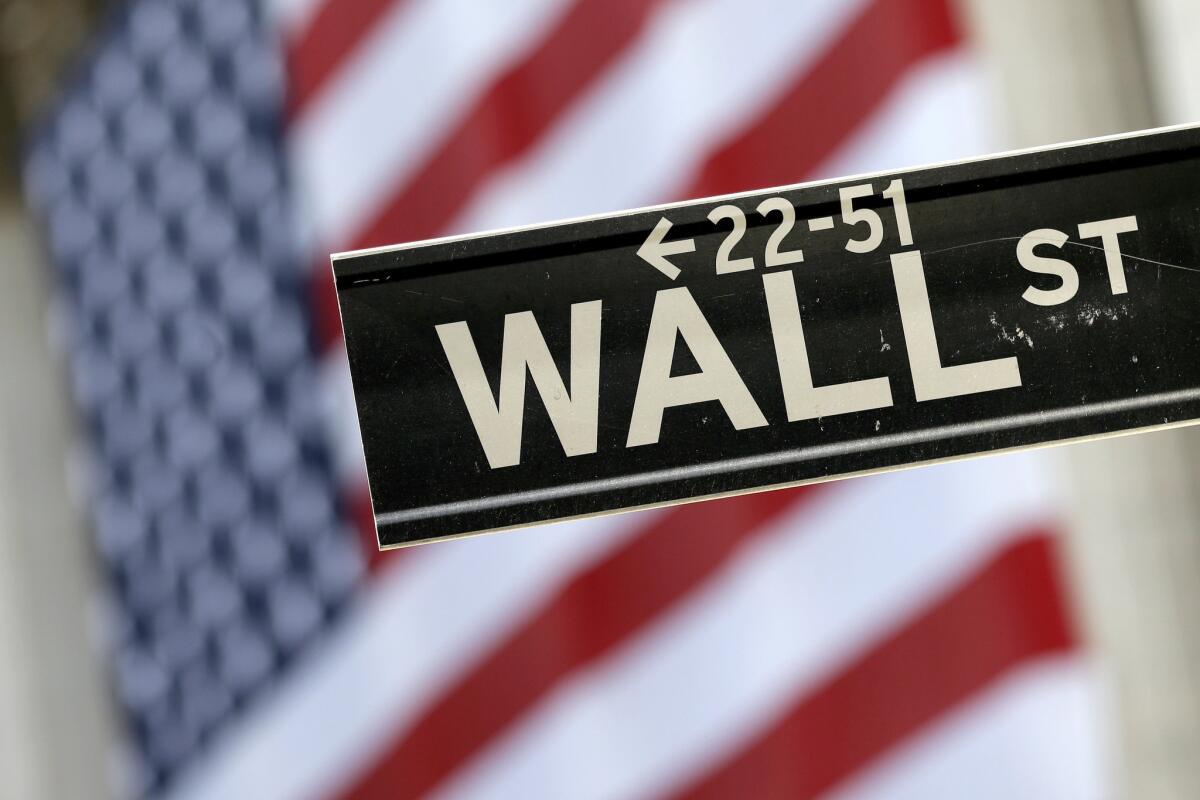Wall Street’s virus outbreak plan includes split trading desks, hourly sanitizing

- Share via
Big banks around the world are rushing to ensure they can keep Wall Street humming in the event of a coronavirus pandemic. The travel curbs have begun — the next steps will upend daily life on trading desks.
Firms are prepping plans that include: Activating backup sites and splitting up teams, so if an outbreak hits one office, colleagues can continue elsewhere. Sanitizing every surface hourly — from traders’ desks and phones to the elevator buttons. Shutting company gyms and maybe cafeterias. Designating rooms to send sickened staff until an ambulance arrives.
It’s a snapshot of what life might look like on Wall Street and across an industry that can’t take a break as global markets swoon over the prospect the virus will run rampant. The plans were described by Regina Phelps, a four-decade veteran of continuity planning and the founder of Emergency Management & Safety Solutions. She said she’s urging clients — which have included the World Bank, Wall Street custody giant Northern Trust Corp. and the three largest U.S. credit card networks — to hone their plans now for a situation that could develop quickly.
“If you get the first case in your office, you need to know exactly what you’re going to do,” Phelps said. “The health department will shut you down for 14 days. Then what?”
JPMorgan Chase & Co., the world’s biggest trading house, restricted all nonessential travel globally this week. It told employees in a memo to start testing their ability to work remotely. Other major banks have curbed travel to affected regions.
Phelps and other consultants predict Wall Street will place personnel farther apart along notoriously crowded desks. Some can work from home, but that isn’t possible for everyone. Many roles rely on access to closely guarded internal systems and third-party trading venues. For banks, it’s also easier to monitor traders for compliance and risk management when they’re in the office.
Some financial firms don’t have companywide systems for tracking absences in real time. Instead, employees who aren’t feeling well notify their managers, who make adjustments on the team. That must change, Phelps said, so that senior executives can detect potential outbreaks faster.
In the U.S., the Federal Financial Institutions Examination Council has been requiring banks to create plans for a potential pandemic for more than a decade. That includes programs to prevent an outbreak from spreading inside a firm, but also steps to continue communicating with customers.
But big banks have been publicly tight-lipped about what specific steps they may take to bolster their domestic operations. Privately, some senior executives acknowledge that they’re still trying to decide. So life on Wall Street still looks relatively normal, even as U.S. authorities shift their tone to say the question is no longer if, but when the virus may arrive.
Still, measures prescribed by consultants can be seen abroad. As outbreaks erupted in South Korea, banks including UBS Group and Citigroup Inc. began splitting workers among different locations to ensure business can continue. Some locations in Europe may follow suit as the virus spreads there.
“As you can imagine, it’s a bit tense,” said Zoeb Sachee, head of European government bond trading at Citigroup.
More to Read
Inside the business of entertainment
The Wide Shot brings you news, analysis and insights on everything from streaming wars to production — and what it all means for the future.
You may occasionally receive promotional content from the Los Angeles Times.










